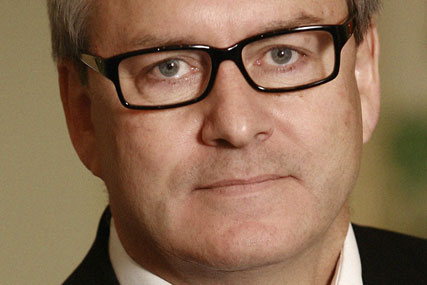Though we’ve all seen it coming it was nevertheless a shock to read – the , 40% of jobs, and has placed its entire staff in a 90-day consultation programme.
This is a miserable and unnecessarily long drawn-out process (thanks to counter-productive EU and UK employment law) as most of the agency heads can testify. Although at least they won’t have the ghastliness of Tupe.
But who would have thought it would be such an about face just over two years after Sir Gus O’Donnell KCB, Secretary of the Cabinet and Head of the Home Civil Service made his congratulatory speech at the launch event for ''.
This book is the distillation of the learning from 39 COI IPA Effectiveness Awards cases and puts forward tangible evidence proving public sector advertising has been a truly efficient form of investment. It has initiated positive behaviour change, saved thousands of lives, improved the health of the nation and, as a result, made substantial savings to the public purse.
Sir Gus O’Donnell continued in the same vein delivering the Audit Commission’s Annual Lecture in 2009 when he said: "Understanding and acting on the so-called ‘wicked issues’, such as obesity and climate change, will demand a much stronger capability to achieve behaviour change at scale. And prevention will almost certainly be cheaper than a cure.
"Of course, our desire to achieve behaviour change is nothing new. Policies and campaigns aimed at immunisation, seat belts and smoking date back years.
"But today’s issues demand individual behaviour change on a scale that we haven’t attempted in the past. And on issues like climate change we need individuals to change for the benefit of future generations.
"We also need to get much smarter. The days of telling people what to do are over. Today it is about influencing.
"The '' campaign is a good example of how we are using the latest behavioural change thinking.
"It is the largest campaign ever run and is based on insight into how families at risk run their lives and what works in changing their behaviours.
"It’s a great example of a strategy that combines policy, delivery and communications for maximum effect. It shows how the Civil Service needs to work if it is to deliver the desired outcomes."
It must be galling indeed for the COI to be facing the worst crisis in its history and one that has come so rapidly. And how difficult for an intelligent man like Sir Gus O’Donnell to have to be party to the near-halving of one of the greatest repositories of advertising, media and marketing communications expertise in the world.
It is also truly frustrating for adland, one of the most commercial of the UK’s creative industries, when Francis Maude, Minister for the Cabinet Office, says the figures proved cutting "wasteful and unnecessary spend on marketing and advertising could make a real difference" when there is such strong evidence to the contrary outlined in dozens of Departmental case histories on campaigns produced by the COI and our agencies.
However, now that this decision has been made we should be pragmatic. We must use this opportunity to measure the result of these radical cuts on people’s lives. We recommend that the key Government Departments work with the COI and their agencies to establish "test" and "control" regions to measure what actually happens when marcoms investment is withdrawn.
This would make a virtue out of a political and financial necessity, and should result in some invaluable evidence. We’ll be talking with the COI and industry partners to see how we can progress this idea. Who knows, maybe some more great IPA Effectiveness Awards paper will result?
Hamish Pringle is director general of the


